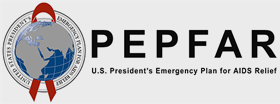During the COVID-19 health crisis, with her school shut down and her education interrupted, 17-year-old Secia Sanuda from the province of Bié found herself pregnant with her first child, Joana. Unfortunately, with the lack of information about family planning and contraceptive use in her community, Secia was devastated to find herself pregnant again when little Joana was only nine months old.
Early pregnancies can impact a girl’s life in many life-altering ways — socially, economically and physically. She may even be forced to let go of her lifelong dreams of education and future opportunities. In addition to the challenge of dropping out of school, girls who experience early pregnancies may face lasting health effects on a body — and brain — not yet fully developed.
The World Health Organization (WHO) found approximately 21 million girls aged 15–19 in - developing countries become pregnant each year, and about 12 million give birth. The adolescent fertility rate in Angola is 163 births per 1,000 girls between 15 and 19 years — the third-highest rate of teenage pregnancy in the world, after Niger and Mali, according to the World Atlas.
A contributing factor is the lack of awareness about family planning and limited access to quality healthcare, education, and family planning commodities.






